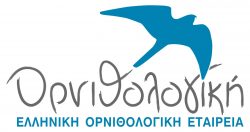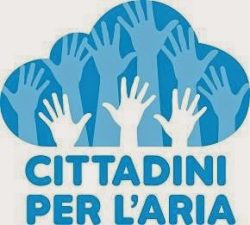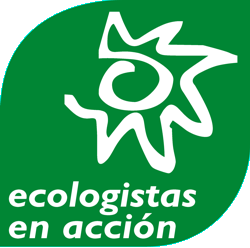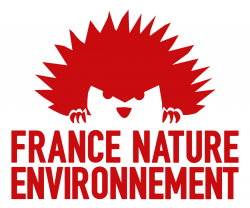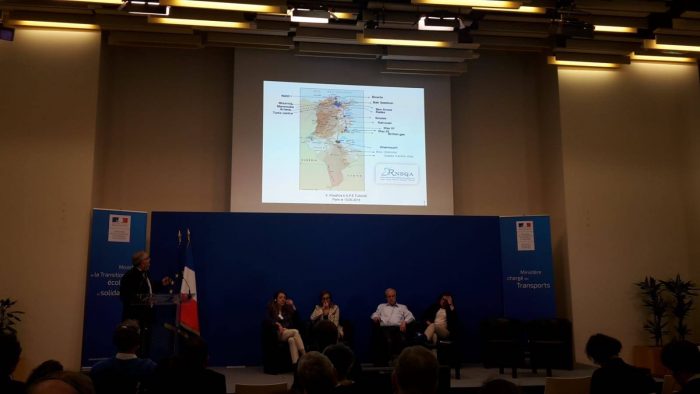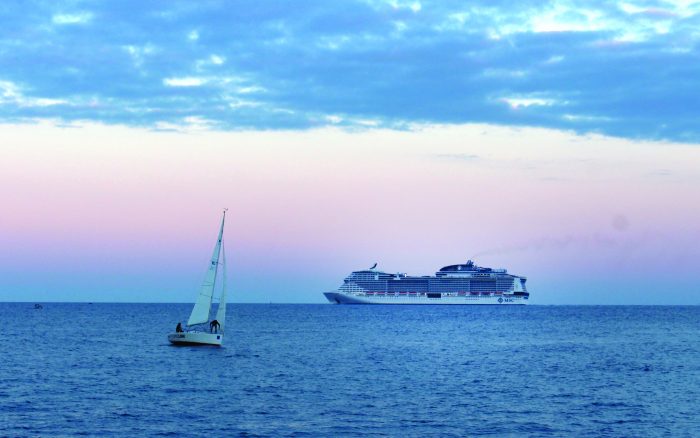BirdLife Malta is currently working on a project Together Against Air Pollution from Ships that will be delivering an awareness campaign on air pollution generated by cruise ships in the Mediterranean.
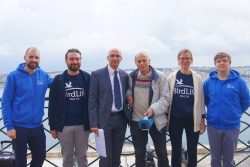
NABU and BirdLife Malta officials together with Axel Friedrich, an independent air quality expert (Photo by BirdLife Malta)
In Malta, concentrations of ultrafine particles in the ambient air when ships are transiting through the Grand Harbour have shown to be 80 times higher than clean air levels expected of areas not exposed to any pollution sources, highlighting the need for solutions to air pollution from ships to to help better protect biodiversity.
Launched in December 2016, the project works with international partners including NABU (BirdLife Germany), BirdLife Greece, and other NGOs in Italy, Spain and France with the long-term goal of establishing a network among Mediterranean countries supporting the establishment of a Emission Control Area (ECA) in the Mediterranean Sea.
On 16th December 2022, the International Maritime Organization (IMO) adopted the proposal to designate the Mediterranean Sea as a Sulphur Emission Control Area (SECA) as from 1st May 2025. This marks a significant step forward towards improved air quality across the whole region as from 2025 all ships transiting through the Mediterranean, including Malta, shall be obliged to switch to cleaner fuels. Read more here.
- Background information
- The situation in Malta
- Project Overview
- Approach
- Project partners
- More information
- News
Background information
Despite the fact that clean air is a basic requirement for human health and well-functioning ecosystems, air quality is globally in a constant decline particularly in urban areas. Cruise ships, berthing in harbours often located in close proximity to dense urban areas contribute massively to air pollution that threatens our climate, our environment and our health.
In 2012, the World Health Organization identified that 95% of Europeans living in urban environments are exposed to levels of air pollution considered dangerous to human health and about 420,000 premature deaths are known as a result in the European Union. Running engines of ships contribute considerably to global and local emissions of sulphur oxides (SOx), nitrogen oxides (NOₓ) and particulate matter (PM). The latter includes soot emissions (black carbon) which are in particular harmful to health and climate. NOₓ emissions diminish the function of the lungs and increase the risk of cardiovascular disease. NOₓ is also a powerful greenhouse gas causing climate warming due to its contribution in the formation of ozone (O₃). High concentrations of O₃ in cities are responsible for the death of elderly people and people with poor health conditions.
Emissions of sulphur oxides such as sulphur dioxide (SO₂) are harmful for our environment, not least because it causes acid rain which leads to the eutrophication of soils and coastal areas and it damages buildings and structures, particularly those made of limestone. Air pollutant emissions are furthermore responsible for a significant loss of productivity in agriculture and have a negative impact on biodiversity.
The situation in Malta
Cruise shipping movements in Malta have increased by almost 16% over the past six years with 280 cruise ships in 2010 and 324 in 2015 berthing at Valletta Cruise Port. In 2014, cruise ship passengers stood at 471,554 for the year, a rise of 9.3% in comparison to 2013. Because of the small size of Malta, it can be assumed that a major part of the island is affected by the above-mentioned impacts.
This adds on to Malta’s significant air pollution caused by traffic, energy generation and industry, identified as major concerns to the environment and health under the Strategic Plan for Environment and Development (SPED). Malta’s Greenhouse Gas emissions increased by 54% between 1990 and 2012, the transport sector being the principal contributor with 91.1% in 2012 (SPED, 2015).
Project Overview
BirdLife Malta will implement the project “Together Against Air Pollution from Ships” together with various Mediterranean environmental Non-Governmental Organisations including Cittadini per l’Aria (Italy), France Nature Environnement (France), Ecologistas en Acción (Spain), and our BirdLife partners Ornithologiki (Greece) and NABU (Germany). We will work towards national awareness raising and knowledge development on air pollution from ships through activities and information sharing among relevant stakeholders as well as general public.
As a long-term goal, we will work together with our partners towards the establishment of a network among Mediterranean countries supporting the establishment of a Emission Control Area (ECA) in the Mediterranean Sea. Emission Control Areas (ECA) are declared areas under the International Convention for the Prevention of Pollution from Ships (MARPOL) ANNEX VI of the International Maritime Organization (IMO), which regulates air pollution from ocean-going vessels and ships in international waters. Ships are obliged to limit their maximum Sulphur content of fuel oils to 0.1% in comparison to outside ECA where a limit to 3.5% is established. The regulations apply to SO₂ emissions generated from ships including combustion equipment and devices onboard.
Approach
To tackle these problems, the project approach is divided into three parts.
National awareness raising, knowledge and information sharing: With the aim to increase the knowledge of the problem of air pollution from (cruise) ships among the general public and identified national stakeholders, we will work towards sharing and publishing information on the topic regularly. Communication activities include distributing project background material, regular updates on the project’s website will make it possible for interested parties to follow all developments.
Compiling national data and taking measurements: Improving the quality of data on the causes and consequences of air pollution from cruise liners provides the groundwork to respond appropriately to the problem. Through air quality monitoring, emission control and research on national health studies, we will work together with relevant stakeholders towards providing the opportunity for suggestions on the development of environmental policies in this field. Existing national baseline data will be researched and collected to be able to measure change throughout the project circle(s). Together, we will identify the most suitable solutions for Malta and the Mediterranean Sea to tackle the problems arising from ship emissions. These include for instance a change in political measures (establishment of emission control areas), technical measures (obligation for ships to install diesel particulate filter, selective catalytic reduction systems, seawater scrubbing and the use of liquefied natural gas), infrastructural measures (onshore power supplies from renewable energies), and voluntary measures for ports (ecological port fees depending on environmental performance of ships, incentive programs to motivate ship owners to be more environmental-friendly).
National and international partnership development: On the national level, the project activities have to be aligned with the objective to work together with relevant stakeholders from the maritime industry and authorities and discuss the necessary steps for the implementation of a ECA in the Mediterranean Sea. On the international level, a network will be established that is able to work on shipping related to air pollution in the partnering Mediterranean countries. Regular exchange of information and knowledge sharing will take place through this network and we will take part at periodical conferences with other European members of the “Clean Cruise Ship Action Network”.
Project partners
This project involves six European partners which are all Mediterranean eNGOs, two of them BirdLife partners in Germany and Greece. Click on their logos to learn more about them.
More information
French study published in January 2019 showing that an ECA in the Mediterranean could save 6,000 lives each year and would bring up to €14 billion in reduced health costs.
NGOs background paper on the Mediterranean Emission Control Area.
The results of the second exercise in air pollution measurement carried out in Valletta (23 & 24 June 2018) and footage of the exercise being carried out.
Presentations and input provided by stakeholders such as national governments, EU bodies, industry stakeholders, leading scientists, ports and NGOs during the international shipping conference in Rome, March 2017. (Balearia, CE Delft, Danish Ecological Council, Dr Axel Friedrich, French Ministry for the Environment, NABU, Paul Scherrer Institute).
The results of the first exercise in air pollution measurement carried out in Valletta (08 December 2016) and footage of the exercise being carried out.
NABU (2015): Clean Air in Ports Manual.
Centre for Energy, Environment and Health (2011): Assessment of Health-Cost Externalities of Air Pollution at the National Level using the EVA Model System.
More information about the project from NABU.
News
Open-loop scrubbers from ships only shifting environmental problem of air pollution to marine pollution
A series of five reports analyzing scrubbers from various aspects released by Swedish Environmental Research Institute have found that open-loop scrubbers produce significant pollution
The UN’s International Maritime Organisation (IMO) is introducing tougher standards on marine fuel quality of 0.5% sulphur maximum, compared to 3.5% currently from 1st January 2020 onwards. This will lead to a increase in air quality in international waters, including the Mediterranean Sea, however, attention must be paid to the approach of how ships are retrofitted to achieve pollution levels that are below the new standard.
A new EU-financed study by the Swedish Environmental Research Institute has tested wash water from open-loop scrubbers. The tests show that untreated wash water from open-loop scrubbers contains significant levels of pollution and is harmful to the marine environment. Researchers behind the study express concerns about the long-term consequences, especially with open-loop scrubbers where wash water is ejected into the sea which leads to the situation that the process merely shifts pollution from the air to the sea and harms marine organisms. Open-loop scrubbers have been a hotly discussed topic in the shipping sector since the new sulfur regulations were adopted.
According to the study, the wash water had a negative effect on vital functions on several organisms. The biggest effect was found on copepods, which according to the study play a key role in the nutritional chain. The issue is particularly problematic in ports and along national and international shipping lanes as the combined effects of the substances in the effluent increases due to discharged scrubber wash water in the lane.
These impacts can be more devastating for a small island state like Malta, given its location in close distance to major shipping routes and thousands of ships, including cruise liners and cargo vessels are stopping off for bunkering in Malta every year as the island sets a strategic location to avoid deviation from the routes between Northern Europe and the Suez Canal. During the process, vessels anchor in waiting and bunkering areas, increasing the likelihood of discharging scrubber wash water.
“Creating new environmental problems in the way that is done by allowing this type of cleaning system is wrong from a sustainability perspective. There have been no thorough environmental studies performed prior to approving the regulations. With scrubbers, of course those without purification, we just move the pollution around,” says Hulda Winnes, project manager and researcher at the Swedish Environmental Research Institute. The study also concludes that other important air emissions, apart from sulphur dioxide, are at higher levels (with scrubber) than emissions from a low sulphur fuel. These emissions are mainly particles and particle components such as organic and elemental carbon.
Interesting is the case of Singapore, one of the world’s largest ports, that announced in November 2018 that it will be illegal to emit wash water from open-loop scrubbers, starting next year when the new sulphur regulations come into force. Most recently, the port issued a warning to shipping companies, saying that residue from scrubbers has been included on the country’s official list of hazardous industrial waste.
The global 0.5% sulphur cap for marine fuels will enter into force on January 1st 2020. The EU Sulphur Directive requires 0.1% fuel sulphur content while at berth in European ports. Stricter regulations on ship emissions are in force in the North Sea, Baltic Sea and the English Channel – these waters are entirely declared as Emission Control Areas (ECAs) with 0.1% fuel Sulphur limit and required TIER III standard for new ships to reduce NOx emissions from 2021. We will see a patchwork of regulation in European waters with higher emissions in the Mediterranean and Atlantic region. Health and environmental protection levels and competitive advantages differ within the European Union.
Air pollution from ships is a significant threat to health, environment and our climate. BirdLife Malta, together with its international partners in the Together against Air Pollution from Ships project is working towards raising awareness on air pollution generated by ships in the Mediterranean with the ultimate goal of establishing an ECA in the Mediterranean Sea. We now call on our national government to take precautionary action and prepare accordingly for the international 0.5% sulphur cap for marine fuels from 2020 onwards by adopting political measures adjusted to local challenges and take position by enacting a ban on toxic heavy fuel oil and consequently a ban of scrubbers in the Mediterranean Sea.
Click here to read the study that was issued by the Swedish Environmental Research Institute. You can read more about the topic here.
Italy joins the coalition of countries calling for a Mediterranean ECA
In May 2018 Italy joined the coalition of countries that are calling for the establishment of an Emission Control Area (ECA) in the Mediterranean.
The news was announced at the G7 meeting of Environmental Ministers in the French city of Metz, where Italian Environment Minister Sergio Costa met with his French counterpart, De Rugy. Among the topics discussed, it was decided to carry out a joint initiative to obtain the declaration of a combined SECA and NECA (Emission Control Area for sulphur and nitrogen oxides) for the entire Mediterranean Sea.
BirdLife Malta welcomed this important step for the Mediterranean Sea, together with the other partners who form part of the international NGO network which has been calling for a MedECA for several years. Janina Laurent, BirdLife Malta Policy Officer commented: “In March, Spain spoke out in favour of an ECA at a conference in Madrid organised by the environmental network. Italy is now also officially supporting a Mediterranean Emission Control Area, right after the European Union and the Government of France have published scientific reports on the enormous socio-economic benefits for the region resulting from a declaration of an ECA. The Government of Malta should join Italy’s and France’s ambition to reduce air pollution in our region.”
Anna Gerometta, President of Cittadini per l’Aria, stated: “This is good news for all people in the Mediterranean as it contains a timeframe and a meaningful event – the Naples Conference under the Barcelona Convention for the Protection of the Marine Environment and the Coastal Region of the Mediterranean, within which all states in the Mediterranean basin will be able to show support for the protection of health of their citizens and the Mediterranean marine environment. The citizens of Italian port cities have contributed to this result highlighting for years the unsustainable impact of shipping emissions in their home towns.”
Third Mediterranean Shipping Conference held in Madrid
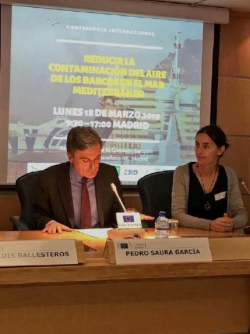 Our third Mediterranean Shipping Conference brought together scientists, politicians, port authorities, shipping industry and environmental organisations on an international level to discuss shipping as a major contributor to air pollution with negative impacts on health, the environment and the climate.
Our third Mediterranean Shipping Conference brought together scientists, politicians, port authorities, shipping industry and environmental organisations on an international level to discuss shipping as a major contributor to air pollution with negative impacts on health, the environment and the climate.
Thanks to the establishment of Sulphur Emission Control Areas (SECA) in the North and the Baltic Sea, air quality significantly improved in this area. Therefore, effective means to reduce air pollution from ships in the Mediterranean Sea such as an ECA should be established likewise. Most recent studies show that the declaration of an Emission Control Area would bring enormous air quality and socio-economic benefits as highlighted by the three impact and feasibility studies of the European Commission, the French Government and REMPEC during the conference.
Other topics covered by the presenters reflected on international shipping regulations, health protection in Europe in connection to air pollution and air quality measurements that were taken in several port cities in Mediterranean countries. The conference was organised by Ecologistas en Acción and a consortium of several European environmental organisations, including BirdLife Malta. Presentations from the conference can be downloaded below:
Keynote Speech: Pedro Saura Galicia, Secretario de Estado de Infraestructuras, Transporte y Vivienda
Harmful impacts of shipping pollution – Sönke Diesener, NABU
Impact of air pollution on cultural heritage sites – Alessandra Bonazza, ISAC
Environmental impact of low emission shipping – Sari Repka, EnviSuM project
Study for the European Commission, DG ENV Consortium: IIASA, MET.NO and EMRC – Christer Ågren, AirClim
Spanish position – Nunez, Ministerio de Fomento
Benefits of the Northern European Emission Control Area (SECA and NECA) – Kaare Press-Kristensen, Danish Ecological Council
Air pollution measurements in port cities – Dr. Axel Friedrich
Mediterranean ECA would bring enormous air quality benefits, could save 6,000 lives each year
A French study published in January 2019 has found that air pollution from ships in the Mediterranean Sea can be significantly reduced with the introduction of an Emission Control Area (ECA). This would bring enormous air quality benefits and could save 6,000 lives each year. The establishment of a Mediterranean ECA would also bring up to €14 billion in savings of annual health costs. Shipping emissions represent 40% of all Mediterranean coastal city air pollution. Read more >>
Cruise ships with worst emissions calling at Valletta port increase by almost double for 2018
Cruise ships visiting Malta with the worst category ranking for environmental impact in terms of emissions, were expected to see an increase of almost double by the end of 2018. The shocking number was revealed on the Cruise Ship Ranking list for 2018, compiled by BirdLife Malta’s German partner NABU (The Nature and Biodiversity Conservation Union) as part of the ongoing joint Together Against Air Pollution from Ships project. Ships placed in this category (rated with four red propellers in the attached graphic), are categorized as having the most harmful impact on the environment, health and climate in comparison to other cruise liners. Read more >>
Measurements show high air pollution levels in Santorini
Last week our partners in Greece, Hellenic Ornithological Society (HOS),were on Santorini Island and carried out measurements on air pollution levels as part of the Together Against Air Pollution from Ships project. The readings revealed that the air pollution around the port was very high, demonstrating further the impact of cruise ships in the Mediterranean and the need to switch to more environmentally-friendly, low sulphur fuels. Read more >>
Mediterranean SOx emission control area study commissioned by the IMO Regional Marine Pollution Emergency Response Centre for the Mediterranean Sea (REMPEC)
A new study to assess the benefits, costs and feasibility of implementing an emission control area (ECA) to limit sulphur oxides (SOx) from ships in the Mediterranean Sea will consider, among other things, the potential health benefits for people living around the Mediterranean as well as cost implications for ship owners. An international consortium led by Energy & Environmental Research Associates (EERA) signed (in June) the contract with REMPEC to carry out the study, to be finalized by spring 2019. Funding for the study, which REMPEC will present to IMO’s Marine Environment Protection committee (MEPC), comes from the Mediterranean Trust Fund, the IMO’s Integrated Technical Cooperation Programme and a voluntary contribution from the Government of Italy. Click here for more information.
Air Quality in Valletta affected by cruise liners
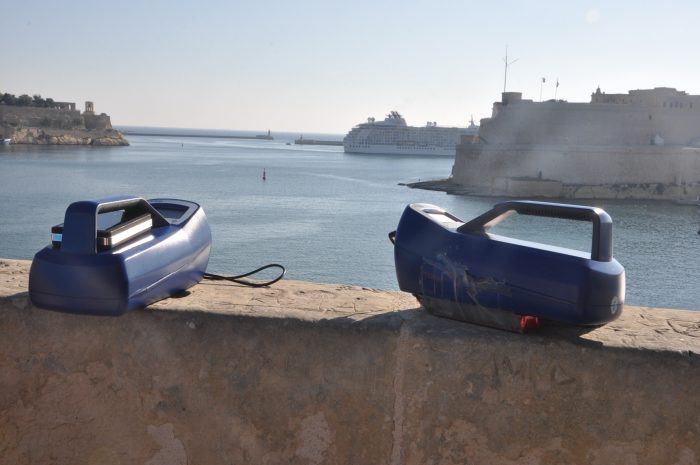
Second air measuring exercise carried out at Valletta port as part of our project monitoring air pollution from ships (Photo by Eleni Karatzia)
On the weekend of the 23rd and 24th of June 2018, BirdLife Malta carried out a second air quality measurement exercise, monitoring the arrival and departure of four cruise liners and several smaller ships at the Valletta Grand Harbour as part of our ongoing Together against Air Pollution from Ships project. Air samples taken opposite to the cruise ship terminal in Senglea show high concentrations of ultrafine particles and NO₂ in the presence of cruise liners, passing by and berthing in the port. Read more>>
Second International Mediterranean Shipping Conference in Paris
With the focus on reducing air pollution from ships in the Mediterranean Sea, BirdLife Malta participated in the second “International Mediterranean Shipping Conference” held in Paris, France on 15th May 2018.
Shipping is a contributor to air pollution that has impacts on human health, the environment and the climate. For coastal areas and port cities ships are a major source of air pollution. However, in comparison to road transport, few actions have been put into place in order to effectively reduce shipping pollutants emissions. The International Maritime Organization (IMO) adopted in October 2016 a 0.5% sulphur threshold for shipping fuel, but it will only enter into force in 2020. Nevertheless, ships will still be a major source of toxic air pollution. Hence, areas with high shipping traffic as the Mediterranean Sea are particularly affected by these harmful shipping emissions such as particulate matter, black carbon, nitrogen oxides and sulphur oxides.
Thanks to the creation of Sulphur Emission Control Areas (SECA) in the North and the Baltic Sea, air quality got significantly better in this area. Therefore, effective means to reduce air pollution from ships in the Mediterranean Sea such as an ECA should be established likewise. In Paris, stakeholders from the shipping industry, ports and cities not only reflected on the shipping emissions’ impacts on the Mediterranean region but also identified the technical and legislative means to effectively reduce air pollution from shipping as well as corresponding challenges. They also addressed ways to ensure proper compliance and enforcement of the existing and the future regulatory framework.
The conference organised by France Nature Environnement, the French Environment Ministry and NABU, was split in three sessions:
Session 1: Air pollution from ships in the Mediterranean region
Dr. Axel Friedrich, International Transport Expert
Session 2: Regulation and Legislation
Session 3: Technical Solutions and Industry Voices
Dr. Hans-Jörg Rembor, Hug Engineering
Hugues Berthet, Schneider Electric
International Maritime Organization meeting
European member states attended a meeting of the International Maritime Organization (IMO) in April 2018 to adopt an initial Greenhouse Gas (GHG) strategy for the shipping sector. Shipping emits 3% of global CO2 – and emissions are increasing year by year – yet it remains one of the few sectors of the global economy without sector-specific emissions reduction targets.
Malta – being one of Europe’s biggest shipping registries and thereby having a stronger voice when it comes to decisions over changes in the international shipping sector – has been identified to lack clear ambition in the climate negotiations, putting economic interests before environmental, health and not least climate interests serving the common good of the public (Transport & Environment Ranking 2018). EU member states have decided to support a 70-100% reduction in maritime greenhouse gas emissions worldwide by 2050, compared to 2008 levels.
This is a great step forward for Europe as a whole and Malta was encouraged to take a leading role during international climate discussions concerning the shipping sector due to its importance for our island and urge Malta and European Member States as signatories to the IMO to conclude on ambitious Greenhouse Gas reduction targets in London in the beginning of April. Read more >>
New study on air pollution from shipping reveals direct link on health impacts
A new study on air pollution from shipping reveals the direct link on health impacts and shipping emissions and assesses regional health benefits as well as positive effects on global climate in the near future. Currently, ship-related health impacts include about 400,000 premature deaths from lung cancer and cardiovascular disease and about 14 million childhood asthma cases annually worldwide. After 2020, all vessels will be obliged to switch to lower-sulphur marine fuels.
The UN’s International Maritime Organisation (IMO) is introducing tougher standards on marine fuel quality of 0.5% sulphur maximum, compared to 3.5% currently. This will lead to a decrease in health-related issues caused by international shipping. However, with regard to the study’s findings “despite these reductions, low-sulphur marine fuels will still account for about 250,000 deaths and about 6.4 million childhood asthma cases annually”. By analysing geospatial shipping data (analysis of statistical and geographical data) of over 64,000 IMO-registered vessels on a global scale, local intensities of these changes in health and climate have been found to be directly related to major trade routes and continental coastlines.
For a small island state like Malta impacts can be more devastating, given its location in close distance to major shipping routes (e.g. Suez Channel – Strait of Gibraltar) and a long coastline with residential areas in close distance exposed to massive shipping traffic (e.g. Port of Valletta and residential areas along the Peninsula). A similar study on a national level was published in 2017 by the Department of Geosciences of the University of Malta. Prof. Raymond Ellul highlighted the problem of air pollution from ships in Malta, stating, “One big tanker that passes by has an engine of about 80 megawatts. A Maltese power station outputs a maximum of 450 megawatts. So a tanker is a fifth of that. But we get 200 ships of that size passing by Malta like that going through every day! It’s like having a couple of hundred mini-power stations going past every day, emitting sulphur dioxide and everything else a power station would emit”. (click on references below)
Sofiev, Mikhail et al. 2018. “Cleaner Fuels For Ships Provide Public Health Benefits With Climate Tradeoffs.”
Nature Communications 9.1 (2018). THINK Magazine, 2017, Issue 20: Stuck in the middle with the fumes, University of Malta.
Adoption of the “Rome Declaration” for an ECA in the Mediterranean
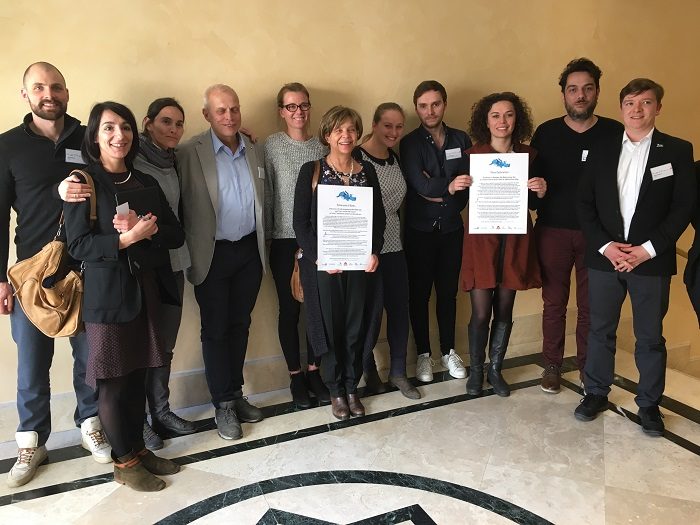
The adoption of the “Rome Declaration” by all the signatories at the international Mediterranean Shipping Conference held in Rome in March 2017
On Tuesday 28th March 2017 the alliance of European environmental organisations participating in the “Together Against Air Pollution from Ships” project adopted the “Rome Declaration” to designate the Mediterranean Sea as an Emission Control Area (ECA) to limit air pollution from ships. The declaration followed a one-day international Mediterranean Shipping Conference held in Rome. BirdLife Malta was present as one of the signatories. Click here to read the press release issued on the adoption of the declaration on Wednesday 29th March 2017.
Extreme air pollution levels found on deck of a cruise ship
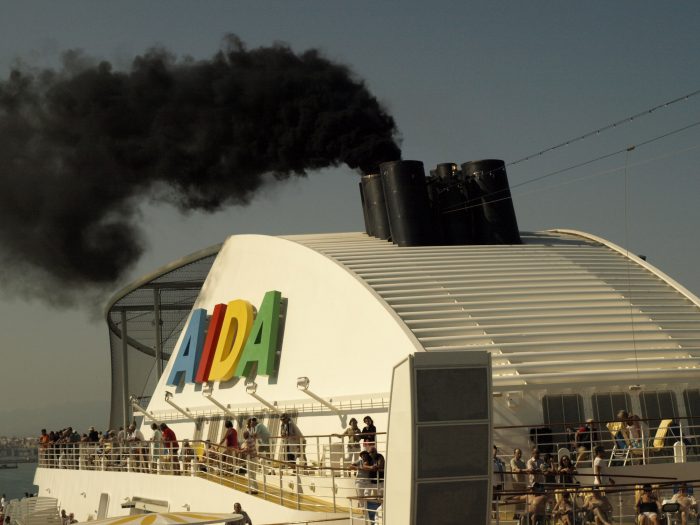
Undercover measurements taken by a French TV team working for the famous TV show “Thalassa” show that ship owners expose their passengers to high loads of health damaging pollutants. The French journalists documented concentrations up to 200 fold above natural background levels on deck of the cruise ship. (Photo by NABU)
Click here to read NABU‘s latest press release issued on 24th January 2017 on the high levels of ultra-fine particles found on deck of a cruise ship following an exercise carried out by French journalists and reported on French TV. The measurements confirmed that cruise ships’ exhaust gases not only severely damage the environment but also harm human health. Undercover air tests taken on the passenger deck of a European cruise ship unveiled high loads of health damaging ultra-fine particles in the ambient air. A journalist documented concentrations up to 200 fold above natural background levels. The measurements were carried out by a French TV team working for the renowned TV show “Thalassa” which was broadcasted on January 20th on France 3. This documentary initiated a big discussion on air pollution from cruise ships in France.


